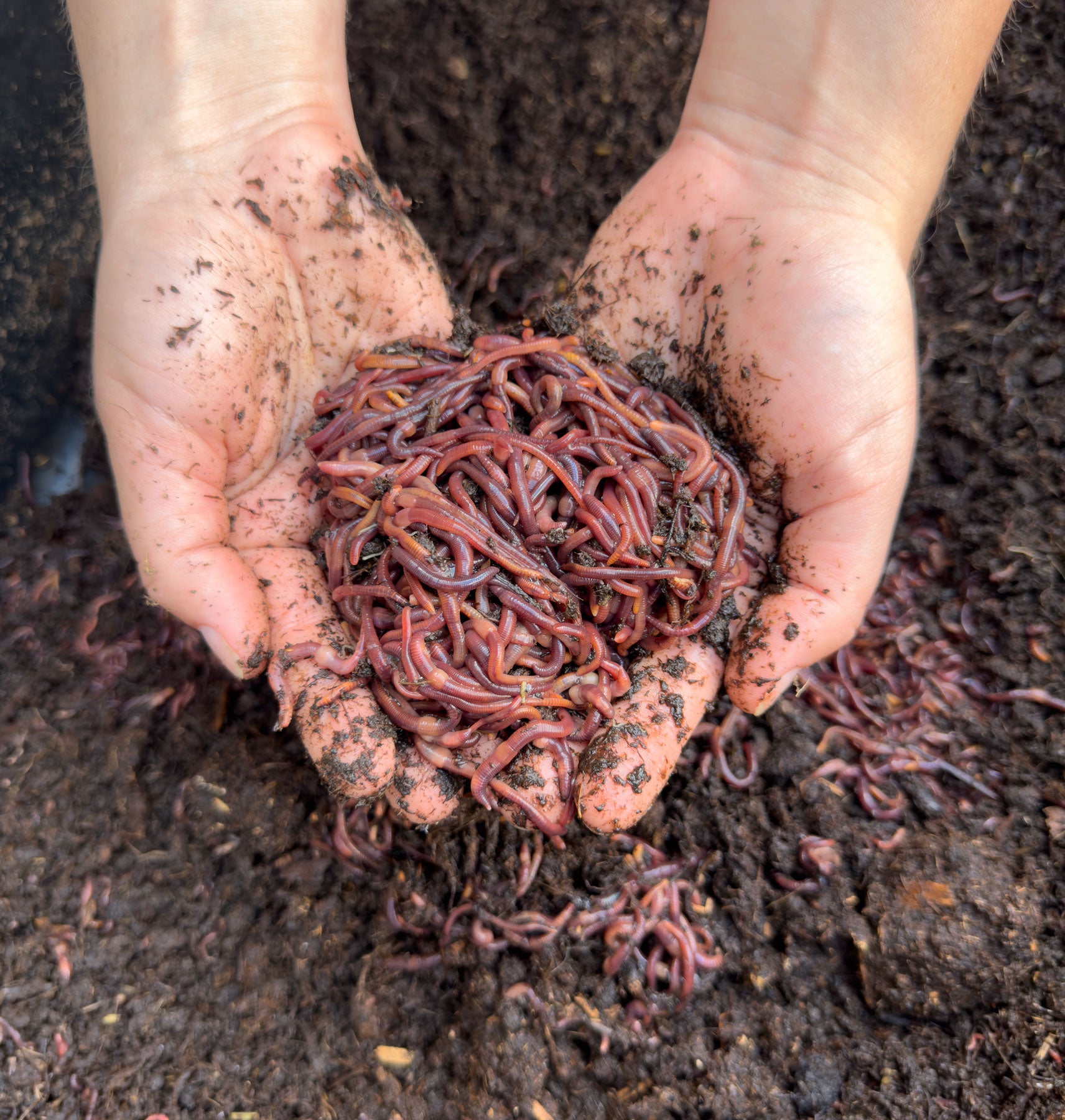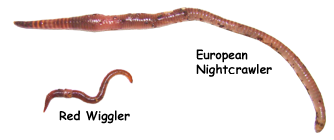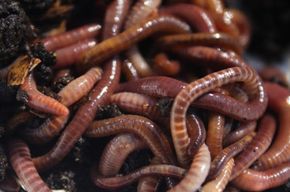Organic Composting with Red Wiggler Worms - Increase Your Yard's Growth
Organic Composting with Red Wiggler Worms - Increase Your Yard's Growth
Blog Article
Red Wiggler Worms Demystified: Opening the Tricks of Vermiculture for Greener Living and Nutrient-Rich Dirt
In the realm of sustainable practices for improving soil quality and advertising eco-conscious living, red wiggler worms play a critical yet typically overlooked duty. These simple creatures have the exceptional ability to change natural waste into nutrient-rich castings that act as a potent all-natural plant food. By diving right into the world of vermiculture, one can discover a plethora of benefits that prolong much past typical composting approaches. Comprehending the ins and outs of caring for these worms, maximizing their atmosphere, and using their castings can bring about a greener way of living and healthier soil for plants to flourish.
The Function of Red Wiggler Worms
Red Wiggler worms play a vital duty in composting systems by efficiently breaking down natural matter right into nutrient-rich castings. These voracious eaters eat a variety of organic materials, such as kitchen area scraps, lawn waste, and paper products. As they feed, the worms' digestive system processes break down the organic matter into a fine, dark, and nutrient-dense material understood as worm castings or vermicompost.
The castings created by Red Wiggler worms are highly helpful for soil health and wellness and plant development. They are abundant in crucial nutrients like phosphorus, nitrogen, and potassium, which are crucial for sustaining healthy and balanced plant advancement. In addition, worm castings contain advantageous germs and enzymes that help boost soil structure, rise water retention, and boost nutrient uptake by plants.
Benefits of Vermicomposting

It enhances soil structure, boosts soil oygenation, and enhances dirt moisture retention. Vermicompost likewise improves the soil with essential nutrients like potassium, phosphorus, and nitrogen, promoting plant growth and total dirt fertility.
Furthermore, vermicomposting assistances lasting gardening techniques by offering a natural and chemical-free alternative to synthetic fertilizers. Red Wiggler Worms. This eco-friendly strategy not only improves the soil however likewise helps reduce dependence on harmful chemicals, promoting a greener and more lasting way of gardening
Establishing a Worm Bin
When establishing a worm container for vermicomposting, proper setup is critical to ensure the success of the composting YOURURL.com procedure. The very first step in setting up a worm container is selecting an ideal container.
After including the bed linens, introduce the red wiggler worms to the container. The worms must then be given with food scraps such as fruit and vegetable peels, coffee premises, and eggshells.
Frequently check the wetness degrees and temperature level in the worm bin to make sure optimal conditions for the worms. With proper configuration and upkeep, the worm bin will successfully convert natural waste right into nutrient-rich compost for your plants and yard.
Harvesting Worm Castings
To effectively accumulate nutrient-rich worm castings from your vermicomposting system, an organized harvesting approach is essential. When it comes time to harvest the worm spreadings, there are a few essential actions to follow to make certain a successful procedure. First of all, stop adding fresh food scraps away of the worm bin for a number of weeks before collecting. This urges the worms to migrate to the side with fresh bed linens and food, making it easier to dig the spreadings from the other side.

Troubleshooting Common Issues
Recognizing and addressing typical difficulties that may occur throughout the vermicomposting procedure is vital for preserving a effective and healthy worm bin. One usual issue that vermicomposters experience is overfeeding. Adding excess food scraps can result in a build-up of wetness and level of acidity in the worm container, potentially damaging the worms. To prevent this, feed the worms in moderation, making certain that the food scraps are adequately damaged down prior to adding more. An additional problem is unpleasant odors originating from the worm container. Foul scents indicate anaerobic conditions, typically triggered by overwatering or poor ventilation. To correct this, readjust the dampness degrees by adding completely dry bed linen products like shredded paper or cardboard and boost aeration by transforming the bedding routinely.
In addition, if the worm populace is decreasing or the worms appear unhealthy, maybe because of environmental stressors such as severe temperature levels or pH degrees. Keeping an eye on these variables and making necessary changes is vital for the well-being of the worms. By fixing these typical concerns immediately, vermicomposters can ensure a effective and smooth vermicomposting procedure while maintaining a thriving worm population.

Verdict
In conclusion, red wiggler worms play a vital function in vermiculture moved here by breaking down organic matter into nutrient-rich dirt. Establishing up a worm container is important for effective vermiculture, and harvesting worm castings supplies beneficial compost for horticulture.
As they feed, the worms' digestive system processes break down the natural matter right into a fine, dark, and nutrient-dense material known as worm spreadings or vermicompost.
The spreadings created by Red Wiggler worms are highly beneficial for dirt health and plant development. Including excess food scraps can lead to a buildup of moisture and acidity in the worm bin, possibly damaging the worms.Additionally, if the worm population is decreasing or the worms show up unhealthy, it can be due to ecological stress factors such as extreme temperature levels or pH levels. Setting up a worm bin is necessary for successful vermiculture, and harvesting worm spreadings gives important garden compost for horticulture.
Report this page